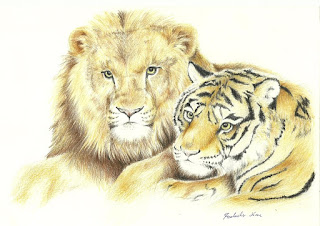For this weeks reading I stuck with the Jataka tales that I have enjoyed so much. I read from tales by Inayat. I particularly liked a story called "The Forest Fire." This is the story of a family of quail that lived in a tree. There was a mother, a father, and 7 babies. Each day the parents would go out and collect worms, insects, and grass seeds to feed the babies. Sic of the seven babies ate the worms and insects, but the seventh only ate the grass seed. As a result, the six who ate the bugs grew and had bug, strong wings, but the seventh didn't grow at all. One day, a forest fire was traveling toward their nest. The parents and the six strong babies flew away to safety, but the small seventh baby could not fly. As the fire got close, the helpless bird spoke to it, saying he was small and couldn't fly. He asked the fire why it was coming to hurt him. As he spoke, the fire stopped and retreated, leaving the small bird and their home safe and unharmed. This was an odd short story but I enjoyed reading it.
Bibliography: Inayat Twenty Jataka Tales (
Link)





















